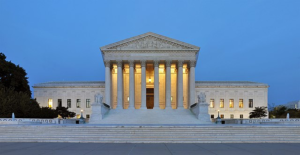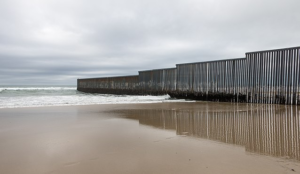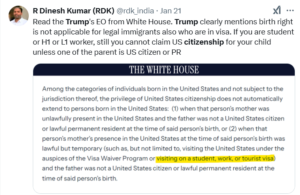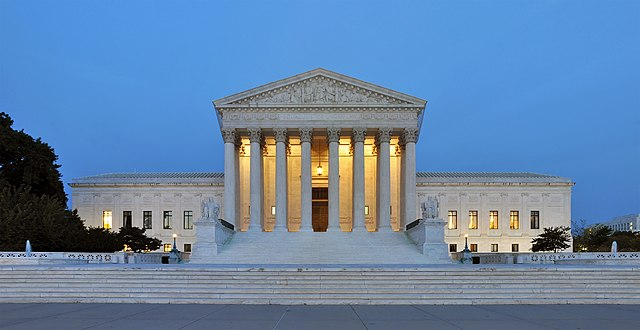A federal judge has issued a temporary restraining order against President Donald Trump’s recent executive order that tries to remove birthright citizenship. This is a big development in the legal system.

A national discussion regarding the interpretation of the Constitution, immigration policy, and the extent of presidential authority has been reignited as a result of this judicial action against the president.
Recognizing the Concept of Birthright Citizenship
Additionally referred to as jus soli or “right of the soil,” birthright citizenship is a principle that is incorporated in the 14th Amendment of the Constitution of the United States of America. The amendment, which was ratified in 1868, declares that
“All individuals who are born or naturalized in the United States and who are subject to the jurisdiction of the United States are citizens of both the United States and the State in which they reside.”

The majority of people who are born in the United States are automatically granted citizenship, regardless of the immigration status of their parents, according to the interpretation that has been universally accepted on this provision.
Only children born to diplomats from other countries or children born to hostile foreign troops are eligible for exceptions.
Over the course of more than 150 years, this clause has been an essential component of American citizenship, helping to shape the nation’s identity as a place on which opportunities are many.
On the other hand, the discussion regarding its breadth and ramifications has reappeared on occasion, particularly during periods of increased attention to immigration.
The Executive Order issued by President Trump
“Protecting the Meaning and Value of American Citizenship” was the title of an executive order that President Trump signed on January 20, 2025 during his administration.
The purpose of the order was to establish a new interpretation of the 14th Amendment by denying birthright citizenship to children who were born in the United States and whose parents were neither citizens of the United States nor lawful permanent residents.
Those who are opposed to the program refer to it as “birth tourism,” which refers to the practice of non-citizens flying to the United States in order to give birth and get citizenship for their children. The executive order was regarded as a courageous attempt to confront this issue.
It is argued by those who support the decision that such practices take advantage of a constitutional clause that was not initially meant to encompass children of undocumented immigrants or visitors who are only temporarily in the country.
Children who were born under the following conditions were explicitly targeted by the order:
In situations where the mother was present in the United States without authorization and the father was neither a citizen of the United States nor a lawful permanent resident of the country.

When the mother was in the United States on a temporary visa and the father’s immigration status was the same, the mother may have been present in the country.
Despite the fact that the decree was supposed to go into effect on February 19, 2025, it was immediately met with legal challenges.
Legal Disputes and the Decisions of the Court
A coalition of 22 states led by Democrats and various civil rights organizations filed complaints shortly after the executive order was signed, saying that it violated the 14th Amendment. The case was launched shortly after the executive order was signed.
The opponents of the amendment argued that the language of the amendment is clear and that any attempt to redefine citizenship must be made through a constitutional amendment rather than through an administrative order.
On January 23, 2025, United States District Judge John Coughenour granted a temporary restraining order, which halted the enforcement of the decree. A judge named Coughenour, who was appointed by President Ronald Reagan, stated the following in his decision:
There is no room for doubt on the Citizenship Clause of the 14th Amendment. It is not possible for an executive order to overcome constitutional rights that have been sustained by precedents that number in the hundreds of thousands.
The decision precludes the order from being carried out while the courts continue to analyze the matter, so laying the groundwork for what may be a drawn-out legal battle.

The historical context and the precedents set by the law
A number of important cases, the most notable of which was United States v. Wong Kim Ark (1898), have resulted in the Supreme Court of the United States upholding the notion of birthright citizenship. Under the 14th Amendment, the Supreme Court of the United States decided that a child who was born in the United States to parents who were not citizens of the United States was a citizen of the United States.
More than a century has passed since this case created a legal precedent that has shaped the policy regarding citizenship in the United States. Those who support birthright citizenship believe that it prevents the formation of a population that is stateless and guarantees equal rights for all people who are born in the United States regardless of their citizenship status.
Critics, on the other hand, assert that the historical backdrop of the passage of the 14th Amendment was centered on the subject of granting citizenship to persons who had previously been enslaved, rather than specifically addressing contemporary immigration issues. The interpretation of this argument has been called into question as a result of this argument.
Implications of the Executive Order On a More General Scale
In the event that the executive order had been carried out, it would have been a substantial shift from the long-standing policy of the President of the United States.
It is estimated that roughly 150,000 children who were born each year could have been impacted by the disease. They say that the order could result in the creation of a class of individuals who do not have a state, which would lead to difficulties in the areas of law, society, and the economy.
In response, proponents of the order argue that putting a stop to the automatic birthright citizenship would reduce the number of people entering the country illegally and discourage “birth tourism.” Citizenship, according to their argument, ought to be a reflection of a more profound connection to the nation, such as legal residency or familial links to residents of the United States.
There is the possibility that such a program will have repercussions that transcend beyond immigration.
It is possible that those who are denied birthright citizenship will have a more difficult time gaining access to education, healthcare, and other essential rights.
Additionally, it may give rise to inquiries concerning the manner in which states manage other legal procedures associated with citizenship, such as voter registration and identity documents.
Various Responses to the Decision of the Court
Various responses have been received in response to the decision of the court to halt the executive order. As a victory for constitutional safeguards and human rights, the verdict was praised by organizations that advocate for immigration rights and civil rights.
Many people believe that born-right citizenship is a reflection of the principles that the United States of America holds as a nation of immigrants.

Supporters of the executive order, on the other hand, have expressed their dissatisfaction with the verdict, regarding it as a missed opportunity to fix what they perceive to be flaws associated with immigration policy.
They argue that in order to retain the legitimacy of citizenship in the United States, it is important to make changes to the birthright citizenship system.
From Here on Out?
It has been made clear that the Department of Justice intends to file an appeal against the decision made by Judge Coughenour. Because of the enormous constitutional ramifications of the case, legal experts believe that it is possible that it will eventually be heard by the Supreme Court of the United States.
In the event that the matter is brought before the highest court in the country, it is quite probable that it would rekindle discussions over the distribution of powers between the executive and judicial arms of government, as well as the continued significance of the Citizenship Clause of the 14th Amendment in contemporary times.
The president’s executive order on birthright citizenship has been temporarily blocked, which brings to light the complications that surround immigration policy, constitutional interpretation, and the authority of the president.
In the course of the ongoing judicial fights, the entire nation will be paying great attention to how this crucial matter may affect the future of citizenship in the United States.
FAQs
What exactly does “birthright citizenship” mean?
Additionally referred to as jus soli or “right of the soil,” birthright citizenship is a principle that is incorporated in the 14th Amendment of the Constitution of the United States of America. It is possible to obtain citizenship for anyone who was born on United States land, regardless of the immigration status of their parents. However, there are exclusions for children of foreign diplomats or enemy combatants.
What were the contents of the executive order that President Trump issued regarding birthright citizenship?
The executive order that was signed by President Trump on January 20, 2025, had the intention of denying citizenship to children who were born in the United States if their parents were neither citizens of the United States nor lawful permanent residents. Specifically, this endeavor aimed to rethink how the 14th Amendment should be interpreted.
What was the reason that a federal judge decided to block the executive order?
A temporary restraining order was issued by a federal judge on January 23, 2025, citing the explicit language of the 14th Amendment, which grants citizenship to all individuals who were born in the United States.
The judge noted that constitutional safeguards that have been recognized by long-standing legal precedent cannot be overridden by an executive directive.
As far as the United States is concerned, what are the historical precedents for birthright citizenship?
In the seminal decision United States v. Wong Kim Ark (1898), the Supreme Court of the United States ruled that children born in the United States to parents who were not citizens are guaranteed citizenship under the 14th Amendment. This precedent continues to serve as an essential basis for the definition of birthright citizenship that is currently in question.
Regarding the legal battle that is taking place over the executive order, what are the next steps?
The Department of Justice intends to file an appeal against the ruling made by the federal judge. Given the major ramifications that the problem has for immigration policy and constitutional law, legal experts believe that it is possible that the matter may eventually be brought before the Supreme Court of the United States.
